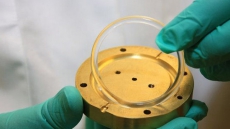Offering new insight into how dietary habits affect the onset of menstrual cycles in girls, researchers have found that frequent consumption of red meat may lead to early onset of puberty which is associated with risks of breast cancer, heart disease, obesity and Type-2 diabetes.
Girls who eat red meat often start their periods on average five months earlier than those who do not, the findings showed.
Conversely, girls who consume fatty fish like tuna and sardines more than once a week have their first menstrual cycle, or menarche, significantly later than those who eat it once a month or less, the study said.
"It is significant because few dietary factors are known to affect the timing of puberty. This finding may also contribute to explain why red meat intake early in life is related to increased risk of breast cancer later in life," study first author Erica Jansen from University of Michigan in the US said in an official statament.
For the study, the researchers measured the usual diet of 456 girls five-to-12 years old in Bogota, Colombia, before they had started menstruating.
The girls were then followed for just under six years. During this time, they were asked whether they had their first period.
Red meat consumed by the girls ranged from less than four times a week to twice a day.
The girls who ate the most red meat started their periods at a median age of 12 years three months, whereas those who ate it less frequently started at 12 years 8 months.
Those who ate fatty fish most frequently began at 12 years six months.
Five months may not sound like a lot but it is a significant number when talking about a population study, the researchers said.
"It is an important difference because it is associated with the risk of disease later in life," Jansen noted.





